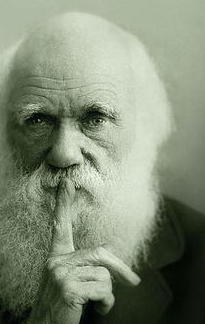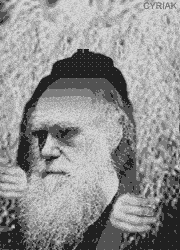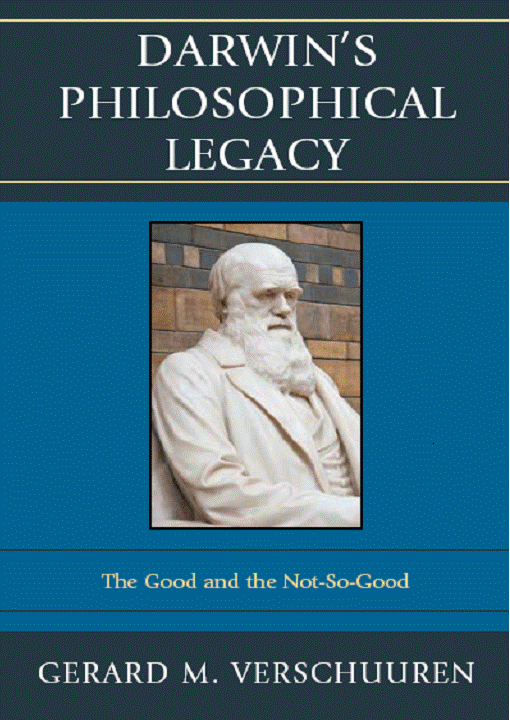Summary
 "There is hardly any university, college, or even high school left where they do not teach Darwinism – and rightly so. Yet, most of these places do more preaching than teaching. In what I like to call “The Good” parts of his legacy, I will explore what Darwin’s great contributions are to the study of evolution and to the theory of evolution. At the same time, I will also delve into the areas where his thoughts were not so perfect or even wrong, especially in a philosophical sense – which I call “The Not-So-Good” parts of his legacy. There are definitely two sides to Darwin’s legacy and we need to carefully balance between both.
"There is hardly any university, college, or even high school left where they do not teach Darwinism – and rightly so. Yet, most of these places do more preaching than teaching. In what I like to call “The Good” parts of his legacy, I will explore what Darwin’s great contributions are to the study of evolution and to the theory of evolution. At the same time, I will also delve into the areas where his thoughts were not so perfect or even wrong, especially in a philosophical sense – which I call “The Not-So-Good” parts of his legacy. There are definitely two sides to Darwin’s legacy and we need to carefully balance between both.
Many books have been written about Darwin and his “revolution,” but they are usually entirely for or against his work. This book, in contrast, wants to evaluate Darwin’s legacy from a more philosophical viewpoint by analyzing the strong points as well as the weak points of what came to be known as neo-Darwinism. Scientists usually work very hard, so there is hardly any time left for serious thinking. That’s why this book supports Darwinism but invites the reader to think deeper about some of its philosophical implications. It will change the way most readers think about this fundamental issue. In doing so, it opens up new vistas that few have ever seen before.
I invite you to follow me on this exciting journey."
|
<
Table of Contents

INTRODUCTION
1. SELECTION FILTER: THE GOOD LEGACY
2. SELECTION FILTER? A NOT-SO-GOOD LEGACY
3. HEREDITY: THE GOOD LEGACY
4. HEREDITY? A NOT-SO-GOOD LEGACY
5. REDUCTIONISM: THE GOOD LEGACY
6. REDUCTIONISM? A NOT-SO-GOOD LEGACY
7. A UNIFIED THEORY: THE GOOD LEGACY
8. A UNIFIED THEORY? A NOT-SO-GOOD LEGACY
9. RANDOMNESS: THE GOOD LEGACY
10. RANDOMNESS? A NOT-SO-GOOD LEGACY
11. NO PURPOSE: THE GOOD LEGACY
12. NO PURPOSE? A NOT-SO-GOOD LEGACY
13. NO DESIGNER: THE GOOD LEGACY
14. NO DESIGNER? A NOT-SO-GOOD LEGACY
15. GRADUALISM: THE GOOD LEGACY
16. GRADUALISM? A NOT-SO-GOOD LEGACY
17. NO THRESHOLDS: THE GOOD LEGACY
18. NO THRESHOLDS? A NOT-SO-GOOD LEGACY
19. SUGGESTIONS FOR FURTHER READING
20. INDEX
Reviews

| "This is an interesting and controversial take on Darwinism and its philosophical implications and legacy. Clearly written, it will undoubtedly promote lively discussion even by those who do not agree with the author’s conclusions. Recommended, especially for those who want to learn more about the issues."
— Michael Ruse, Florida State University
Founder of the Journal of Biology and Philosophy
|

| "Gerard M. Verschuuren provides a first-rate analysis of Darwin’s philosophical legacy, especially in terms of a balanced assessment of Darwin’s argument and the assumptions underlying it. Verschuuren paints a portraiture of Darwin that includes the full spectrum of colors—both pleasing to the eye and not.
The outcome is a very vibrant and clear book, which gives the reader a fair sense of the impact Darwin’s notion of evolution has had upon understanding ourselves and our place in nature. Overall, Verschuuren provides a novel and credible exploration of Darwin’s legacy from a philosophical perspective."
— James Marcum, Professor of Philosophy
Director of Baylor's Medical Humanities program
Baylor University
|

| "In Darwin’s Philosophical Legacy, Gerard Verschuuren develops a point-counterpoint dialectic that is didactically effective to explain some fundamental tenets of the theory of evolution and their abuse by theories such as racism, Social Darwinism, Intelligent Design, and the like.
A fascinating book. Read Darwin’s Philosophical Legacy, you’ll learn and enjoy it."
— Francisco J. Ayala, Former Professor of Biological Sciences
University of California, Irvine
|

| "At the core of the biological sciences, evolution is the thread that links anatomy to molecular biology, ecology to biochemistry, and paleontology to development. But it is also an idea whose philosophical impact has transcended biology to influence both the social sciences and the humanities.
As Gerard Verschuuren makes clear, this influence has not always been for the better. Serious ideas have serious consequences, and readers interested in evolution's powerful philosophical legacies will find this provocative new work a must-read."
— Kenneth R. Miller, Professor of Biology
Brown University
|
"The uniqueness of this latest work is that it takes a balanced approach to understanding the impact of Darwinian theory on contemporary science. Human geneticist Verschuuren accomplishes this with paired chapters that he uses to examine the "good" and "not-so-good" parts of Darwin's legacy. Though most works in the genre focus on either the physical or metaphysical components of Darwin's theory, Verschuuren has made an ambitious attempt to bridge the two in a modest number of pages. […]
Summing Up: Recommended. Upper-division undergraduates and above."
— In Choice, Jan. 2013 (J. A. Hewlett)
|
Can Darwinism Survive without Teleology?
|

|
|
|
|


"There is hardly any university, college, or even high school left where they do not teach Darwinism – and rightly so. Yet, most of these places do more preaching than teaching. In what I like to call “The Good” parts of his legacy, I will explore what Darwin’s great contributions are to the study of evolution and to the theory of evolution. At the same time, I will also delve into the areas where his thoughts were not so perfect or even wrong, especially in a philosophical sense – which I call “The Not-So-Good” parts of his legacy. There are definitely two sides to Darwin’s legacy and we need to carefully balance between both.





